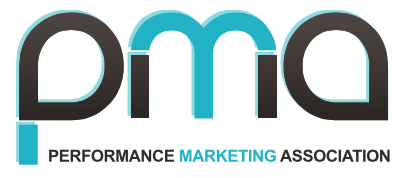
FTC Disclosure Update from PMA Member eAccountable
 (This post initially appeared on PMA Corporate Member eAccountable’s blog View from the Top)
(This post initially appeared on PMA Corporate Member eAccountable’s blog View from the Top)
I can’t stress enough that regulators – specifically, the Federal Trade Commission (FTC) – are cracking down on those failing to follow its wide ranging guidelines on disclosures. These guidelines regarding how everyone promotes and endorses products impacts bloggers, affiliates, social media users, agencies, networks, and more.
Recently, a network was held liable for the activities of its affiliates. There is likely to be more decisions with this outcome as the FTC seeks to protect consumers from deceptive online marketing and advertising practices.
The bottom line is that ignorance is not bliss. Not being aware of new regulations is not an excuse for failing to comply with new regulations and could land marketers in hot water. eAccountable is very aware of these regulations as an outgrowth of our affiliate blogger outreach. As these efforts have been rapidly increasing, assuring compliance is a major undertaking.
On May 29, 2015, the FTC attempted to address some specific questions and provide more clarity by updating the FAQs to its Guides Concerning Use of Endorsements and Testimonials in Advertising (“Endorsement Guide”), which was originally amended in March 2013 to include online and mobile advertising.
A common theme across much of the new guidance is the FTC addressing questions raised by the proliferation of Internet and social media. As the FTC’s blog announcing the FAQs notes, the legal principles remain the same, but online developments require new application of these principles. Because there is a level of overlap between the Endorsements Guide and Dot Com Disclosures Guide, advertisers should examine FTC guidance as a whole when creating the requisite disclosures.
Although the updated FAQ doesn’t offer specific wording recruitments, it does note it will “usually be effective” to include a simple disclosure that “Company X gave me free product to try.”
Here’s a breakdown of the FAQ updates:
Affiliate Marketing: The FTC expands on its previous FAQs, which stated that an affiliate marketer must disclose the relationship to any online retailers clearly and conspicuously on its site so readers can “decide how much weight to give [the] endorsement.” Specifically, the new FAQs clarify that merely including the “affiliate link” by itself or a “buy now” button will not be a sufficient disclosure, as consumers may not know it means the “person placing the link is getting paid for purchases through the link.”
Disclosure of Advertiser Payment: The new FAQs add questions about what information must be disclosed in addition to merely “I got a product for free.” The FAQs explain that it depends on what the blogger received. If the endorser is compensated in a way that could impact the credibility of a review, it must be disclosed. For example, if a video game blogger is being paid to try a game, that fact must be explicitly clear. Language such as “I got a sneak peek of the game” is not sufficient.
Online Review Programs: The FTC expanded its guidance related to online reviews, adding a section in the new FAQs that provides examples for when a website with online reviews must provide disclosures. To the extent a retailer sends a consumer a free product, even if the reviewer is told to be honest whether positive or negative, the retailer must disclose that information. In addition, if a multi-channel network (Company XYZ) on YouTube enters into a contract with a videogame marketer, in which XYZ will pay its reviewers to upload reviews of the videogame marketer’s games, it is not sufficient for a “sponsored by XYZ” disclosure to be made. The name of the videogame marketer, who has an interest in positive reviews, should be disclosed.
Social Media Influencers: The FTC added minor tweaks to its guidance on social media influencers, clarifying an advertiser’s liability for “what others say in social media.” In part, the FTC states that companies using a network of bloggers should instruct members of the network on their responsibilities for disclosing connections, “periodically search for what people are saying,” and generally make a “reasonable effort” to know what people in the network are saying. As a best practice, each advertiser should adopt a social media influencer policy to ensure it has effective processes to comply with this guidance.
Twitter: The FTC updated the FAQs to state that starting a tweet with “Ad” or “#Ad” would “likely be effective” in communicating that a tweet is an advertising message (as opposed to its previous iteration which stated it “might be effective”). The FTC reiterates its previous guidance that there is no specific wording necessary for Twitter disclosures, explaining it will assess the sufficiency of a disclosure based on the broad principle that the consumer must receive the necessary information to evaluate the sponsored statement.
Employee Endorsements: The new FAQs add an entire section on employee endorsements, but do not mandate specific disclosure words for employees (and employees of related ad agencies and PR firms). However, the FAQ states explicitly it requires any employment relationship be disclosed when making an endorsement. The FAQs indicate a company is not expected to monitor every employee post, but they “should establish a formal program to remind employees periodically of your policy, especially if the company encourages employees to share their opinions about your products.”
Social Media “Likes”: The new FAQ’s add a section on social networking sites, stating consumers are allowed to write about their love of a product without making disclosures – as long as they are not being “rewarded.” However, the FAQs state that “if you’re doing it as part of a sponsored campaign or you’re being compensated – for example, getting a discount on a future purchase or being entered into a sweepstakes for a significant prize – then a disclosure is appropriate.” The FAQs add that “[a]n advertiser buying fake ‘likes’ is very different from an advertiser offering incentives for “likes” from actual consumers.” If the likes are from people who are not consumers, they are clearly deceptive.
Social Media Contests: It is now required that businesses engaging in social media contests must disclose clearly that the post is being made as part of a sweepstakes or contest and must include a hashtag disclosure of “contest” or “sweepstakes.”
Video Uploads: The new FAQs indicate any material information related to an endorsement must be disclosed “clearly and prominently” in the video itself. Many consumers don’t read the description and thus watch the video without ever seeing the requisite disclosures. The FAQs recommend that any disclosures be included at the beginning of a standard video, but if the video is extremely long, such as a live videogame play through, multiple, periodic disclosures should be made.
If you’d like more information, the PMA has a whitepaper that can be downloaded.
Although, the FTC has not offered specific wording, it is imperative that disclosures are necessary, and erring on the side of over disclosing will keep you out of trouble with regulators.
Durk Price is the CEO and Founder of eAccountable, a full-service digital agency based in Denver, with customers spread coast-to-coast as well as internationally.

 Follow
Follow